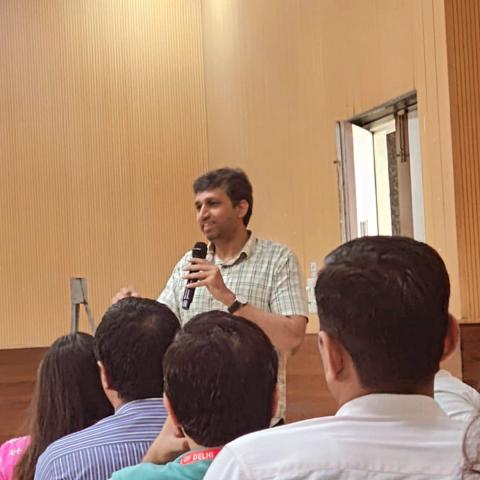
Mathematical Thinking: From Classroom Operations to Real-World Applications
There is a very infamous saying in your school: the result in mathematics is the result of the school. In other words, the percentage of students who manage to pass mathematics in a particular grade reflects the overall performance of that grade. Mathematics continues to be projected as a difficult subject, which ordinary students find challenging to deal with.
This concern is echoed through various policy measures. The new education policy suggests that difficult subjects like mathematics should be taught during the morning hours in school. The CBSE allows students to choose a relatively lighter version of the course in grade 10, and distance education often helps students pass board exams without opting for math papers.
While interacting with students, I find there is a total disconnect between mathematical thinking and mathematical operations. What children do in class are basically mathematical operations on numbers and symbols. Often, these appear as isolated exercises that have nothing to do with lived experiences. When asked how it’s going to help, the general response is, “Aage kam aayega” (It will be useful in the future), or more specifically, “Hisab kitab theek ho jayega!” (The accounts will be in order). None of these responses are even remotely connected to mathematical thinking.
None of the students know or are told that the theorems they use to solve problems took years, sometimes several generations of mathematicians, to develop. It all begins with a trilogy of operations: observe, record, and analyze. For instance, if we ask two students to stand on the sides of two roads differing in width and nature—a street and a highway—and record the number of vehicles passing through in an hour and their makes, they can later match and analyze their data. They might find that broader roads observe more four-wheelers, whereas the street sees more two-wheelers in the same period. Can we infer that broader roads facilitate greater movement of four-wheelers? Would this observation be universal, as universal as knowing the three angles of a triangle sum up to 180° or the distance between the center and the circumference of a circle is always the same?
Universality is the special nature of mathematical theorems, and deriving it takes years and sometimes hundreds of mathematicians working together, extending the work of previous generations. All that amazes the human senses and those that are man-made are essentially the direct products of mathematics. Skyscrapers are not possible unless mathematical modeling on paper proves their feasibility. Our entire operation in space is not possible without mathematical calculations. A plane is only able to fly when we are completely sure of how much fuel is required to cover a particular distance. Imagine if there was uncertainty in this calculation; would we ever be able to fly?
What modern human beings are, with greater control over their surroundings and destiny, is possible through mathematical thinking. Now, large-scale calculations are leading us to the AI revolution.
Still, several important fields require mathematical modeling to make life easier. For instance, we do not yet know a method of teaching that converts into 100% learning. Can there be a mathematical model for it? The idea of learning outcomes indicates this, but it has several flaws. Can there be mathematical modeling to ensure that government schemes to uplift the lives of the poor are efficiently implemented? We know there are many leakages, resulting in huge wastage of public resources. There are several fields awaiting powerful mathematical modeling to bring precision and perfection.
In our mathematics classrooms, we can draw students' attention towards mathematical thinking and demonstrate how it is related to mathematical operations. We can show how various aspects of human life are influenced by mathematical modeling so that we can have better control over our lives and destiny. If anything in its manifestation is truly magical, it is mathematics. How can our students and teachers remain untouched by the magic of mathematics?
- Log in to post comments
